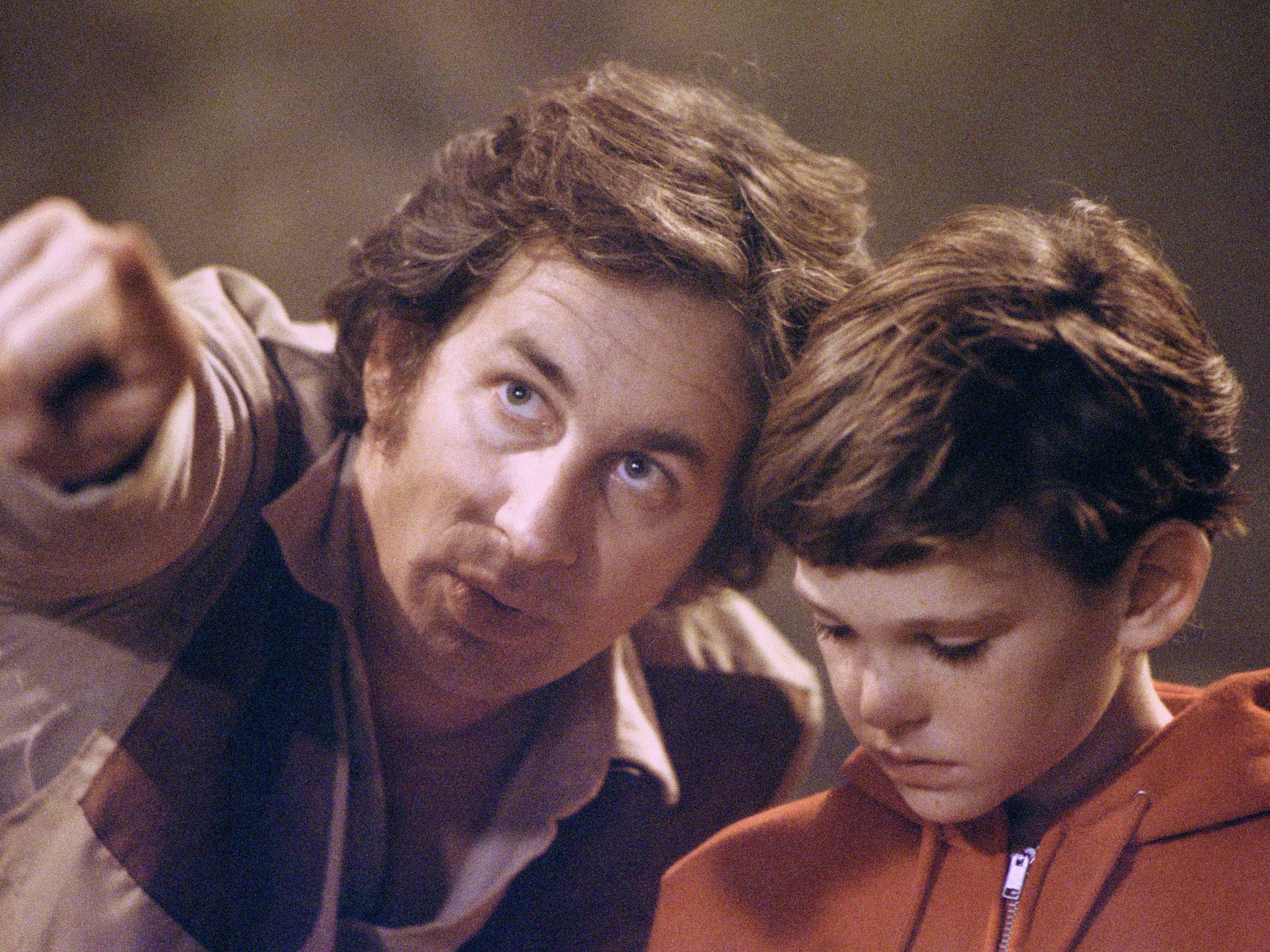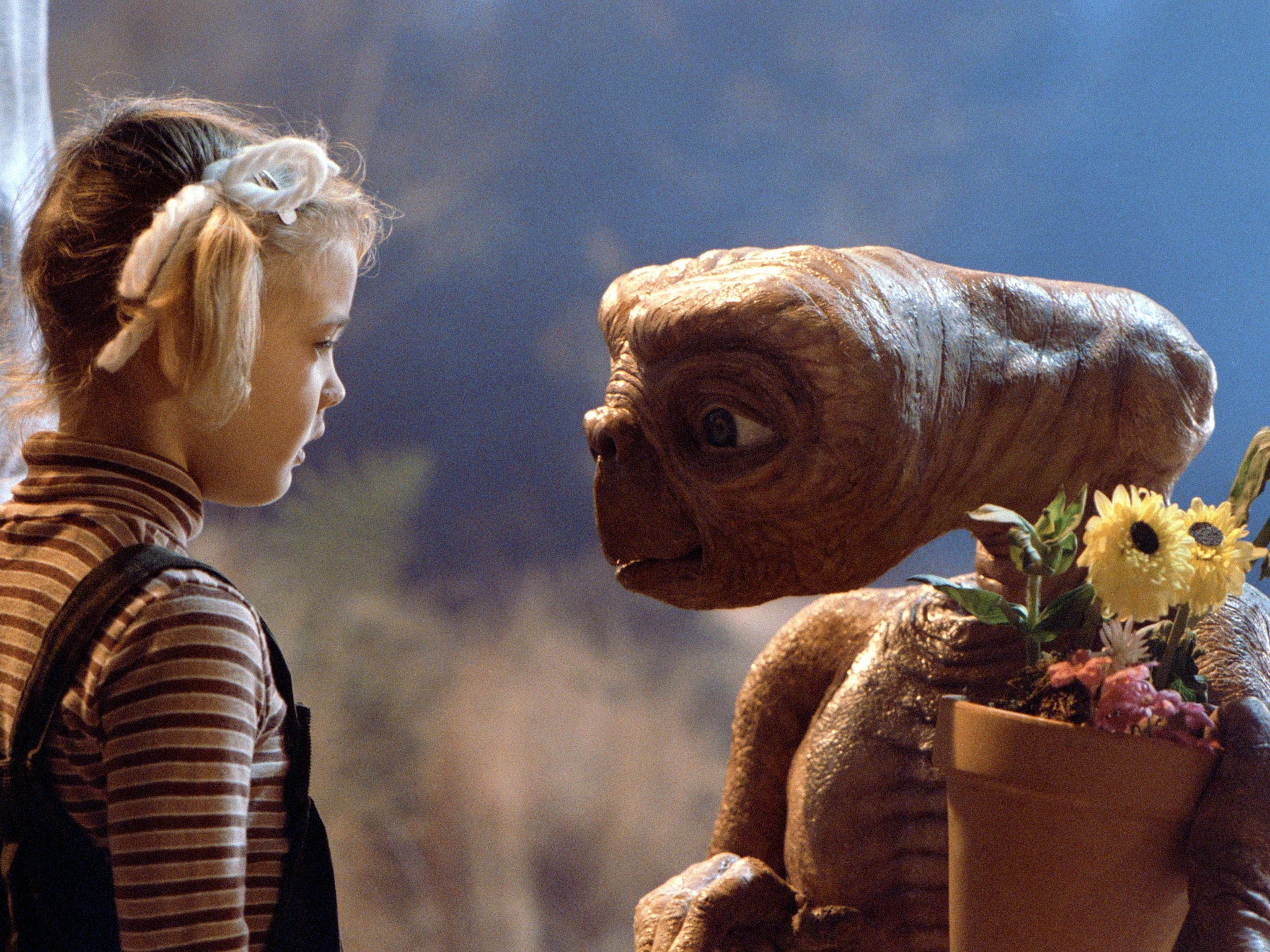The Fabelmans looks set to be Spielberg’s most personal film – after ET, that is
Four decades after its release, ‘ET: The Extra-Terrestrial’ is both a period piece and as topical as ever, writes Geoffrey Macnab. It’s also worth revisiting in time for Spielberg’s next film, which is reportedly just as autobiographical. Sans the alien, presumably

A boy is subjected to horrific antisemitic abuse at his new school. Kids throw coins on the floor as he walks past and leave bagels in his locker. He is called “a k***” and punched in the face.
Exacerbating the boy’s misery is the divorce of his parents; one of the darkest traumas of his childhood, brought on after his mother starts an affair with a family friend.
The boy in question is Steven Spielberg. One surefire way to combat the bullies is to make films and cast his tormentors in prominent roles. Spielberg has been in love with the movies ever since he was taken to see Cecil B DeMille’s 1952 romance The Greatest Show on Earth when he was only five.
It is fitting that Spielberg’s ET: The Extra-Terrestrial (1982) is being re-released this month, just as the director’s latest film, The Fabelmans, is about to receive its world premiere. The new movie is openly autobiographical, dealing with the director’s childhood in Arizona, and specifically his parents’ divorce. This is also the indirect subject of his earlier picture. Elliott, the protagonist in ET who befriends the lovable, big-eyed extraterrestrial creature, is likewise trying to make sense of the break-up between his parents, with his dad having mysteriously vanished to Mexico.
The Fabelmans reportedly includes a dramatised version of the real-life encounter that Spielberg had as a teenager with the curmudgeonly, wizened, eye patch-wearing filmmaker John Ford (played by Twin Peaks director David Lynch). Ford gives the kid a few moments before telling him to “get the f*** out of here”. His gruff advice on how to make pictures, though, is enough to convince the boy he too might have a future in the business. Admittedly, it would be a stretch to suggest that the alien in ET is the symbolic equivalent of the John Ford character in The Fabelmans. Nonetheless, the two films are companion pieces. In both, a precocious, unhappy boy is looking for companionship, affirmation – and a father figure.
Spielberg identified very closely with the 10-year-old protagonist of ET. His biographer Joseph McBride describes the film as “a disguised emotional autobiography” of its director. “Steven became a filmmaker partly to become accepted socially,” McBride explains one reason why the school nerd went behind the camera and proceeded to hand out roles to his classmates.
In ET, Elliott’s friendship with the alien is his passport to popularity. By the final reel, his older brother (Robert MacNaughton) and the school jocks who were once so mean to him are all eager to help Elliot smuggle the alien away from the authorities.
One of the things that people miss about Spielberg is that there is a darkness underneath the joyous parts
In the US, Universal Pictures and Amblin Entertainment are re-releasing Spielberg’s classic exclusively on Imax screens this month. It’s a strange decision given that this is one of Spielberg’s smallest, most intimate pictures; “a suburban psychodrama” in his own words. As Dee Wallace, who plays Elliott’s mother Mary, tells me, “It [ET] was actually supposed to be Steven’s little film, in between a lot of his blockbusters”. To its detractors, ET has the look of a glorified TV movie. It is a sci-fi story with a spaceship and an alien included, but most of the action unfolds in settings we recognise from countless other Eighties sitcoms and soap operas. Much of the action takes place inside Elliott’s family home. His mum (Wallace) is so overcome with her domestic struggles that she doesn’t even notice the alien with a glowing heart and very long, spindly fingers under her roof.
The VFX isn’t anything to phone home about. Shots of kids on bikes with images of the sky projected behind them are supposed to simulate flying. One reason the film was lit dimly was that the cinematographer Allen Daviau was worried about revealing that the alien, designed by special effects wizard Carlo Rambaldi, was actually made of rubber and plastic. (Wallace, though, remembers that the cast treated ET as if he was another actor. In particular, child star Drew Barrymore, six years old at the time, used to have earnest discussions with him between shots, oblivious to the fact he wasn’t “real”).
The cast isn’t very high profile, either. Barrymore is utterly adorable as Elliott’s dimple-chinned younger sister, while Peter Coyote has a certain gravitas as the government scientist tracking the alien. This is not, though, a movie with A-list stars. Columbia Pictures famously turned the project down because it seemed to them to lack obvious commercial appeal.
At the time Spielberg made ET, his reputation hadn’t fully recovered from the perceived failure of his 1979 Second World War comedy, 1941, which had done far less well at the box office than Jaws or Close Encounters of the Third Kind. “It [ET] has no greater claim on the attention that countless other minor Hollywood movies,” complained the influential British critic Robin Wood, who regarded the film as a clunky, sexist Reagan-era fable. The film, though, quickly became a full-blown cultural phenomenon. It appealed to all sorts of audiences. When it premiered as the closing picture of Cannes Film Festival in 1982, members of the festival jury – which included magical realist author Gabriel Garcia Marquez, US director Sidney Lumet and actor Geraldine Chaplin – were overheard saying, “Thank god, a great film.” It wasn’t in competition, and they weren’t voting on it, but the highbrow festival crowd gave ET a rapturous reception. Cinemagoers everywhere else responded in the same measure.
Several theories have been advanced about the runaway success of ET, which still ranks as the fourth most popular film of all time in terms of cinema tickets sold. Some have pointed to its religious themes. Others have noticed its resemblance to The Wizard of Oz, with the alien as the Dorothy figure and the kids as pint-sized equivalents of the scarecrow, cowardly lion and tin man, helping the poor gargoyle find his way home. Spielberg was also picking up Walt Disney’s mantle. In the early 1980s, Disney had lost its way and was peddling a sanitised, wholesome Fifties-style vision of family life, which had begun to seem very anachronistic in a post-Watergate, post-Vietnam war America. In 1981, for example, there had been a record 1.21 million divorces in the US.

McBride recalls being told by his old colleague Art Murphy, the former chief critic at Variety, that “the reason this film was such a big hit was that Spielberg recognised the reality of divorce”. Wallace (whose latest self-help book Born: Giving Birth to a New You was recently published) agrees that ET dealt frankly with how many American families, including her own, were living then. ”My mother was not single, but she might as well have been because my father was a severe alcoholic…for all practical purposes, I was raised by a single mom. I knew the energy of Mary really well: the mother who would do anything to take care of her kids.”
This was Spielberg’s most personal film to date, inspired by his own feelings of loneliness and helplessness following his parents’ separation, but it had an immediate universal appeal. Kids could relate because it was honest about the traumas of childhood and broken families. Meanwhile, their parents recognised themselves in characters like the harassed mum played by Wallace.
John Sayles, the writer-director of Oscar-nominated films such as Passion Fish (1992) and Lone Star (1996), had originally been commissioned by Spielberg’s producer Kathleen Kennedy to work on Night Skies, a screenplay about malevolent aliens targeting a rural family. Spielberg felt this was far too violent. “It really went against my grain… to tell an aggressive, scary story about aliens attacking a farmhouse,” the director recalled in a 1996 documentary. (Sayles went on to make 1984’s The Brother from Another Planet, in which the extraterrestrial stuck on earth was a Black man).
I’ve watched it with young people, and they relate to it just like all the kids did when it came out… it reaches into their hearts, and they just get it.
Instead of tackling Night Skies, Spielberg decided midway through shooting 1981’s Raiders of the Lost Ark that he wanted to tell a story about a lonely boy and a benign alien. He recruited screenwriter Melissa Mathison, who had been on the Raiders set with her then-partner Harrison Ford, to write the script. She was the one to bestow ET with his magical healing powers.
Forty years on, the film is at once a period piece and as topical as ever. The director once described ET as “a minority story… that stands for every minority in this country”. In a post-Trump America in which immigrants are treated with such hostility, it has an added resonance. Sounding a Scrooge-like note, the veteran critic Robin Wood sharply criticised the mawkishness at the heart of ET. He took particular issue with its portrayal of the “‘Other’ in the shape of a lovable, totally innocuous little extraterrestrial”. When it came to dealing with race and persecution, Spielberg wasn’t exactly Malcolm X. Nonetheless, the film probes far deeper than other family movies of its era. “That is one of the things that people miss about Spielberg… there is a darkness underneath the joyous parts. ET is such a fun, charming and delightful film but it has got a lot of pain underneath,” McBride tells me.
Wallace sums up the enduring appeal of ET in a nutshell. “I’ve probably seen this film 150 times now. I cry every time and I laugh at myself because I know exactly what is coming,” she says. “I’ve watched it with young people, and they relate to it just like all the kids did when it came out… it reaches into their hearts, and they just get it. I have little kids coming up to me at personal appearances, little three- and four-year-olds, and they’ll look at me and they’ll put their finger out and go ‘ET, phone home!’”
The question now is whether Spielberg can bottle some of the same magic in his new, more overtly autobiographical outing The Fabelmans. But this time, he’ll have to do so without any creature comforts to help him.
‘ET’ is re-released in the UK on 2 September. ‘The Fabelmans’ receives its world premiere at the Toronto International Film Festival, 8-18 Sept






Join our commenting forum
Join thought-provoking conversations, follow other Independent readers and see their replies
Comments